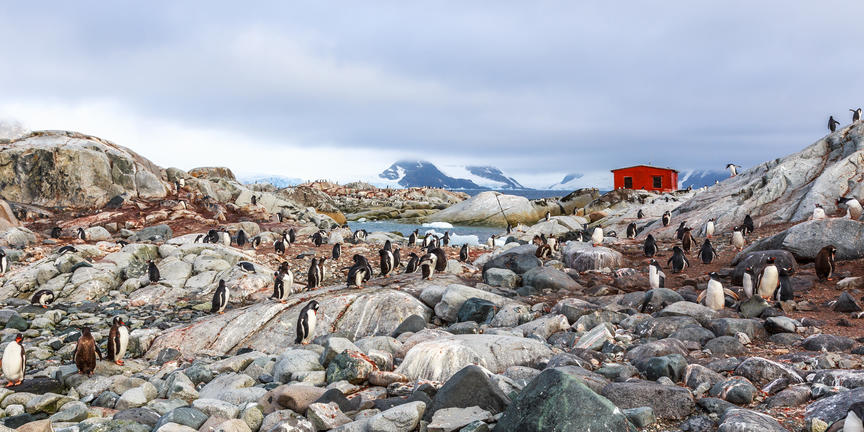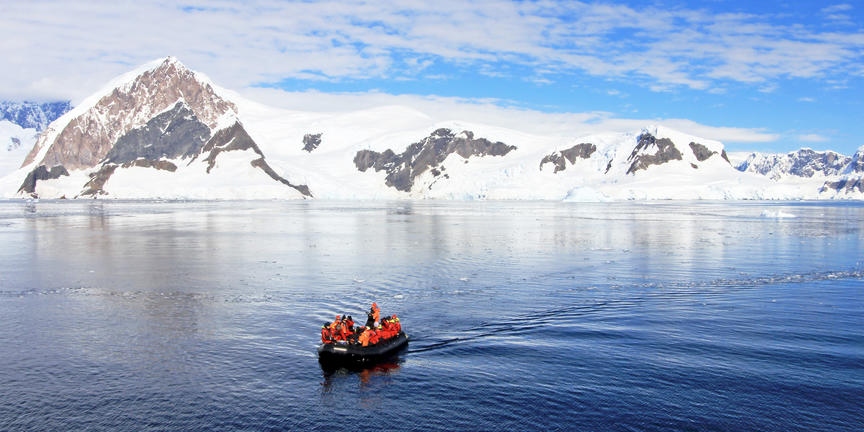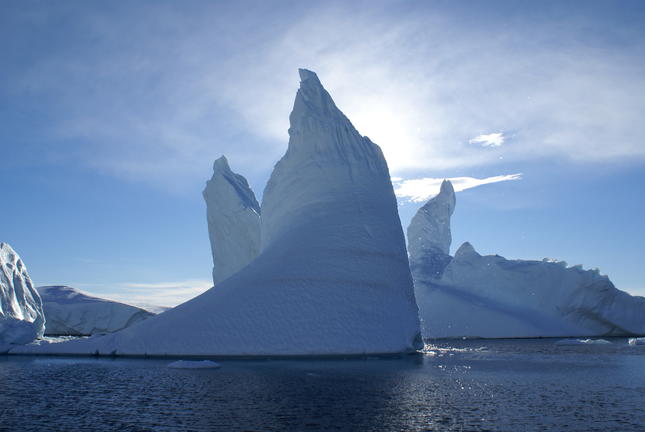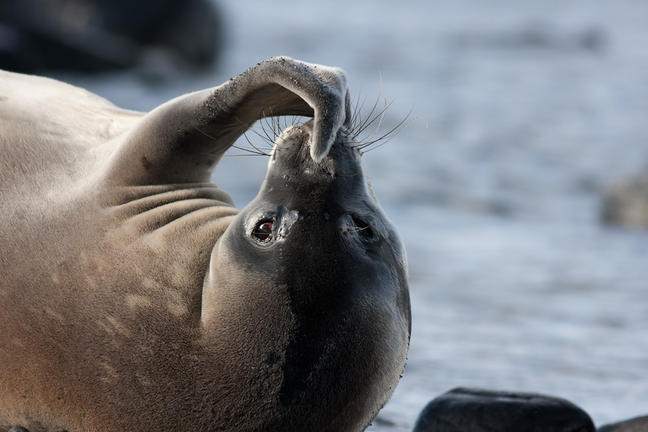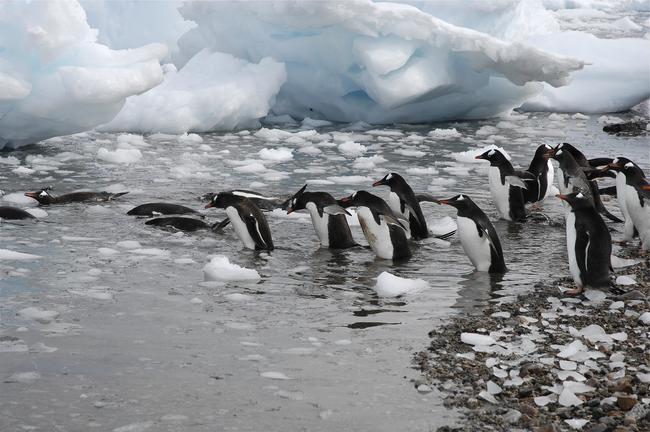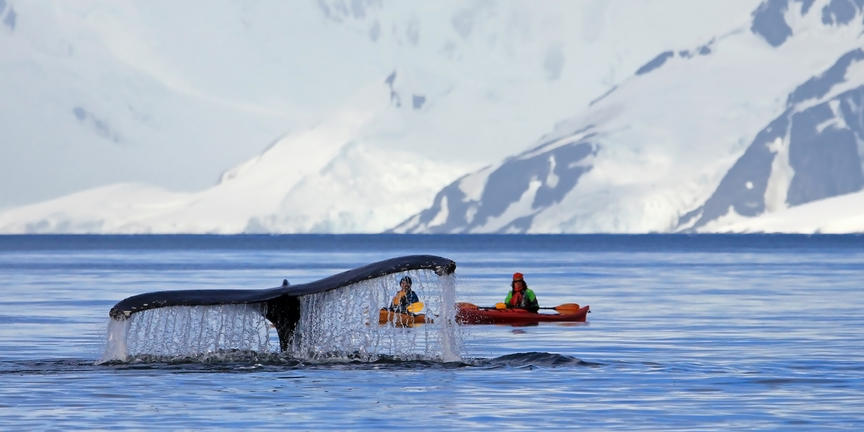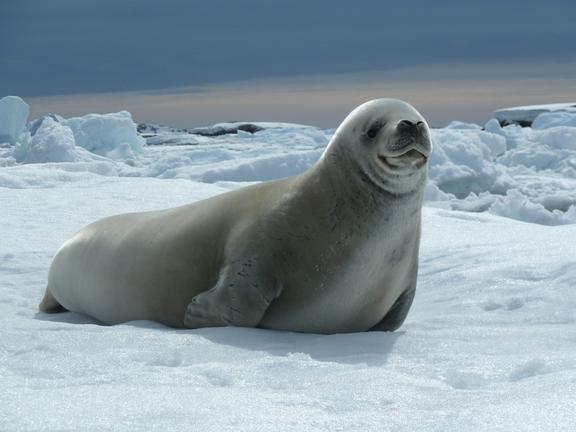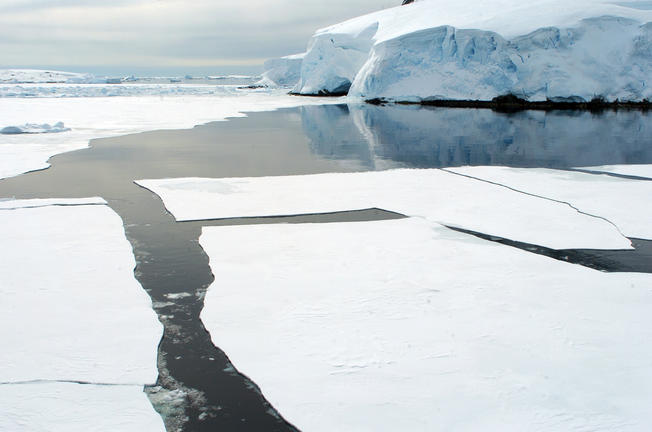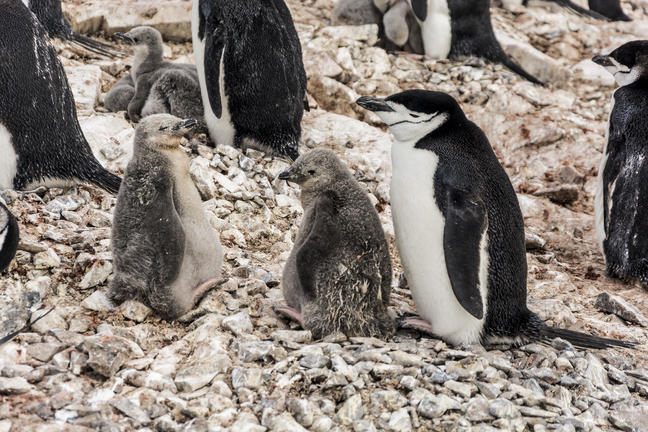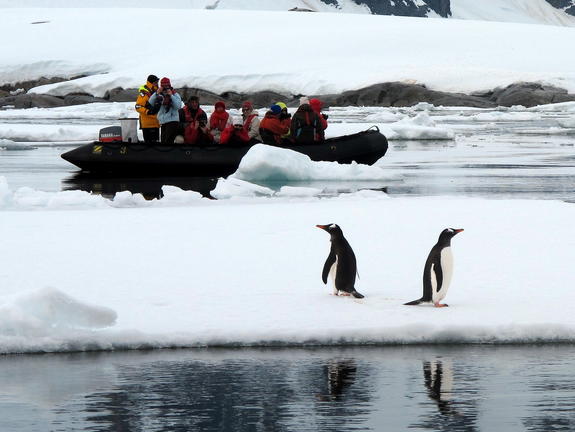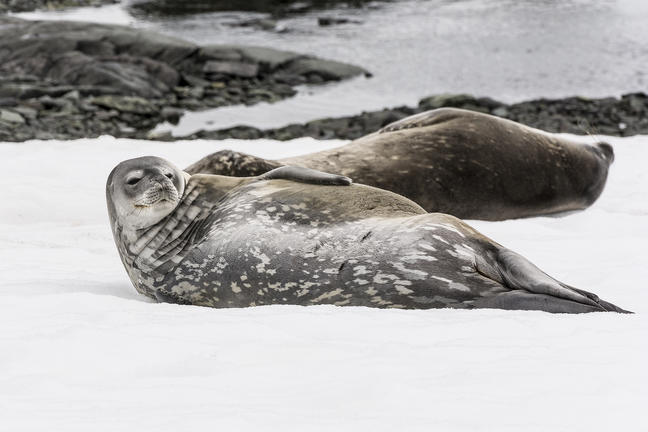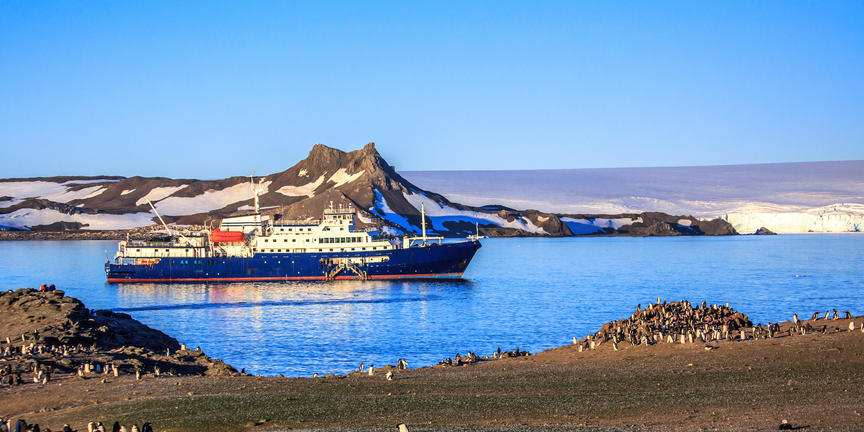Antarctica is a land of extremes: it is the coldest and driest continent on Earth and has the highest average elevation. As the fifth largest continent in the world, Antarctica is also the most Southern, overlying the "South Pole". Scarcely touched by humans, the frozen land boasts breathtaking scenery, broken by only a handful of scientific bases and a "permanent" population of scientists numbering only a few thousand. Visitors to Antarctica generally must brave rough sea crossings aboard ice-strengthened vessels, but those who do are rewarded with amazing scenery and tremendous wildlife.
Antarctica is the only continent with no significant land plant life and no native land mammals, reptiles, or amphibians (polar bears inhabit the North Pole). However its shoreline serves as nesting ground for many species of migratory birds and penguins, and the Southern Ocean surrounding it is home to many fish and marine mammals, including whales.
Although several countries have laid claim to various portions of Antarctica, it is governed by the 1958 Antarctic Treaty, which establishes the continent as a peaceful and cooperative international research zone. There are no cities per se, just some two dozen research stations.
